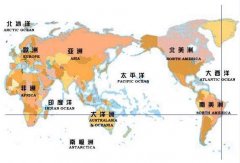A hermit in Brazil's boutique coffee kingdom.

Origin: Brazil
Grade: good
Particles: more plump
Acidity: slight acid
Uniformity: stability
Baking: low to deep
Flavor: neutral beans, low acid, smooth and round taste
Brazil grows Arabica and Robusta coffee, but it is mainly Arabica coffee, mostly dried.
There are about 3.97 billion coffee trees in Brazil, and the number of people engaged in coffee production is two to three times that of Colombia. By the beginning of the 20th century, Brazil's coffee production was about 75% of the world's total output. Over a long period of time, coffee accounted for 2% of the country's total export revenue, thus making coffee a well-deserved kingdom. At present, Brazil is still the largest coffee producer and exporter in the world (the output accounts for more than 1ax 4 and the output accounts for more than 5%).
Brazilians are inextricably bound to coffee. They drink coffee just as Brazilian men can play football, and they can't do without coffee on any occasion. They drink coffee at every meal except black tea for breakfast. Especially when entertaining guests, Brazilians usually express their host's deep friendship by drinking coffee. They usually invite guests to drink espresso, drink cup after cup with very small cups.
Brazil Santos Coffee
The most famous in Brazil is the ancient bourbon Santos coffee grown on some estates in the Serrado district of the state of Milasquillas in southeastern Brazil. Sandoz's name comes from the port where coffee is shipped. There are a variety of criteria for classification and classification of Brazilian coffee beans. One of the most important criteria is that according to the port of export, Santos port exports have "Pindou Santos" and the first "bourbon Santos". Bourbon coffee is the most suitable for drinking when it is fresh and tender, because the older it is, the stronger the acidity. After the bourbon coffee tree produces some new beans, the coffee beans get bigger and lose some flavor, and this kind of coffee is called "Ping Dou Santos".
Brazilian Santos belongs to neutral beans. Coffee has moderate aroma, acid and alcohol, low bitterness and is famous for its smooth taste. It is mild, slightly sour, smooth and round in the mouth, smooth but has a good return to sweet taste. Its neutral flavor, refreshing and harmonious flavor is regarded as an indispensable role in blending coffee, and it is also very suitable for drinking as a single product. It can be said that Brazilian coffee has no outstanding advantages and no obvious shortcomings. In the eyes of many experts, the high-quality Brazilian Bourbon Santos is comparable to Blue Mountain Coffee, and its good flavor is talked about by people. If Blue Mountain is the king of coffee, then Bourbon Santos Coffee in Brazil is a hermit in the coffee kingdom. People who love Santos coffee usually regard it as an implicit and meaningful friend.
(this article is reprinted)
Important Notice :
前街咖啡 FrontStreet Coffee has moved to new addredd:
FrontStreet Coffee Address: 315,Donghua East Road,GuangZhou
Tel:020 38364473
- Prev

Columbia Super Coffee Flavor description Coffee Bean basic knowledge
Flavor characteristics: sweet in acid, low bitterness, rich in nutrition, unique sour and mellow Colombian coffee is one of the few coffee named after the country in the world, and it is also one of the most famous coffee in the world. Colombia is located in the northwest of South America, and coffee is another pride of the people of this country besides football. The streets and alleys here are full of cafes, serving students.
- Next

Brazil Bourbon Santos Coffee basic details Coffee General knowledge
Flavor and taste characteristics: a variety of flavors, low acidity, taste lubrication. Brazil is a rich and beautiful land, with the Atlantic Ocean in the east, more than 7400 meters of coastline and the famous Andes in the west. Brazil is also the world's largest coffee producer, known as the coffee country. Brazil is vividly compared to the giant and monarch of the coffee world. Brazilian coffee was made in 1729
Related
- Detailed explanation of Jadeite planting Land in Panamanian Jadeite Manor introduction to the grading system of Jadeite competitive bidding, Red bid, Green bid and Rose Summer
- Story of Coffee planting in Brenka region of Costa Rica Stonehenge Manor anaerobic heavy honey treatment of flavor mouth
- What's on the barrel of Blue Mountain Coffee beans?
- Can American coffee also pull flowers? How to use hot American style to pull out a good-looking pattern?
- Can you make a cold extract with coffee beans? What is the right proportion for cold-extracted coffee formula?
- Indonesian PWN Gold Mandrine Coffee Origin Features Flavor How to Chong? Mandolin coffee is American.
- A brief introduction to the flavor characteristics of Brazilian yellow bourbon coffee beans
- What is the effect of different water quality on the flavor of cold-extracted coffee? What kind of water is best for brewing coffee?
- Why do you think of Rose Summer whenever you mention Panamanian coffee?
- Introduction to the characteristics of authentic blue mountain coffee bean producing areas? What is the CIB Coffee Authority in Jamaica?

